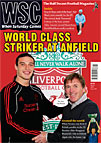 At 37, Kevin Muscat’s playing career could be over following his latest reckless challenge. Graham Willgoss examines the Australia international’s controversial reputation
At 37, Kevin Muscat’s playing career could be over following his latest reckless challenge. Graham Willgoss examines the Australia international’s controversial reputation
Is Kevin Muscat mad, bad or misunderstood? The controversial former Crystal Palace, Wolves and Millwall defender dived two-footed into the latest – and possibly the last – media storm of his playing career after committing a horror challenge. Muscat’s latest misdemeanour came while playing for his current club Melbourne Victory in Australia’s A-League. In the closing minutes of a frenetic 2-2 draw with city rivals Melbourne Heart, Muscat launched himself at Heart winger Adrian Zahra with a studs-up scissor-kick that connected with his opponent somewhere around the knee.
The force of the foul sent Zahra into a 360-degree somersault and resulted in an instant red card. Without pausing for breath, Muscat stormed off the field delivering a tirade of abuse to anyone who crossed his path. The reaction has been almost as explosive as the tackle itself. The feeling in the Australian sports media, and a large part of Victory’s fanbase, is that it’s one reckless challenge too many from “Musky”, for whom it was a second sending off in as many games.
His former Socceroo team-mate Mark Bosnich was characteristically forthright, labelling the episode a “disgrace”, adding: “Whether he is a friend or not, you can’t defend the indefensible.” The Australian Daily Telegraph questioned whether Muscat had irreversibly tarnished the A-League’s reputation and called the challenge “a blight on the game”. Over here, the Sun took its lead from several blogs circulating footage of the tackle and went with: “Is this football’s worst ever foul?”
Muscat’s worldwide infamy has been further fuelled by the original Fox Sports News clip of the tackle, which has gone viral and been viewed more than half-a-million times on YouTube. Craig Foster, another former Socceroo, blamed the Victory hierarchy for letting Muscat “roam pitches like an untethered junkyard dog”. The club has not however sought to add to the punishment set by the Football Federation Australia: an eight-
game ban.
With only a handful of matches remaining, the suspension could bring down the curtain on Muscat’s A-League career – at 37, it is questionable whether he will play another season. If it is the end of Muscat’s playing career, then Zahra is fortunate to still have a shot at his own. The 20-year-old winger sustained knee ligament damage and has undergone surgery, but he is predicted to return.
Muscat responded to the furore over his challenge in a statement the day after the game. “It was an incident that I deeply regret,” he said. “It was a mistimed tackle – dreadfully mistimed. At no point did I have any intent to injure the player.” It could be a brutal final chapter to a career littered with controversy.
Former Charlton midfielder Matty Holmes took Muscat to court after a challenge that broke Holmes’s leg in several places and effectively ended his career. Holmes’s barrister called it “the second most expensive tackle in British football and legal history” after Muscat was ordered to pay costs and compensation amounting to £750,000 (a sum exceeded only by ex-Huddersfield Town defender Kevin Gray’s settlement with former Bradford striker Gordon Watson, with £909,000). He has also seriously injured, among others, Christophe Dugarry and Craig Bellamy.
Despite the infamy that has followed Muscat wherever he has played, he was undoubtedly a talented player who represented his country 51 times, scoring on ten occasions. He also played a major role in leading Millwall to their first FA Cup final in 2004 (which he missed through injury). And in six seasons with Victory, he has captained his side to two domestic doubles and a treble, winning the A-League Championship, Premiership and Challenge Cup in the 2008-09 season.
For now, Victory will not push Muscat to make a decision on his future, but at the very least it is likely he will remain in his coaching role at the club with a view to one day becoming manager. If he is going to be accepted in the top job by the media and the club’s fans, he will have to get his timing right.
From WSC 289 March 2011